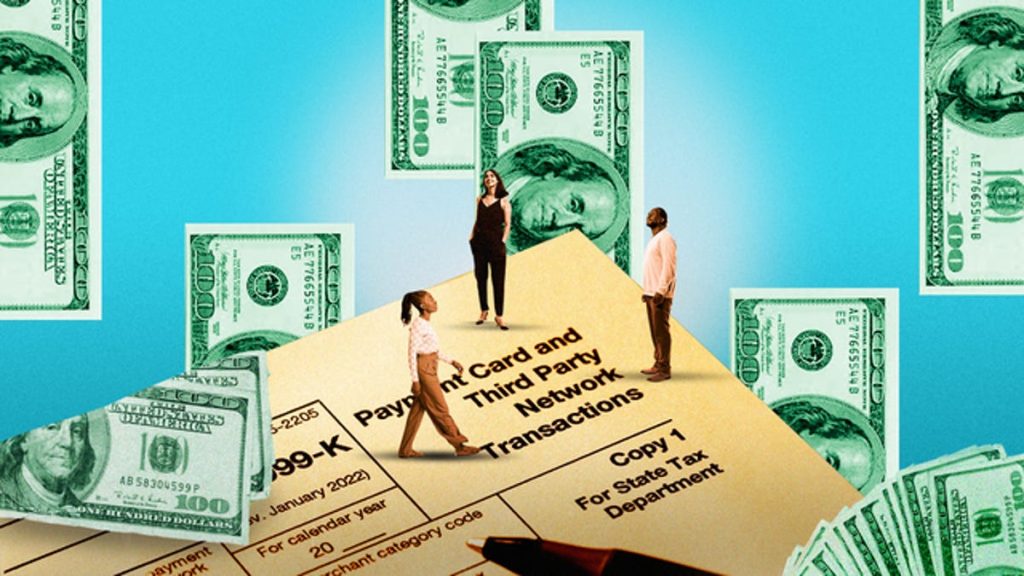The IRS has implemented a new tax reporting change requiring third-party payment apps like PayPal, Venmo, and Cash App to issue a 1099-K for anyone who earns self-employment income over a certain amount through these apps each year. If you earned $5,000 or more on a third-party app last year, you can expect to receive this tax form. This change is part of the IRS’s effort to keep better tabs on income earnings that might otherwise go unreported. Freelancers and side hustlers are familiar with 1099 tax forms, but the 1099-K is different as it is issued by the payment platform, not the company you work with.
The IRS will be able to keep a closer eye on freelance earnings with the new 1099-K rule, but personal transactions like paying your roommate your share of rent through Venmo are not considered taxable. The new rule requires third-party payment apps to report earnings over $600 to the IRS, and for 2024 taxes, the threshold will be raised to earnings over $5,000. This phased rollout is intended to reduce inaccuracies and give the IRS and payment apps more time to work towards the $600 minimum threshold. The delay in implementing this rule was due to the complexities of distinguishing between taxable and nontaxable transactions on third-party apps.
All third-party payment apps where freelancers and business owners receive income, such as PayPal, Venmo, and Cash App, are required to begin reporting transactions to the IRS in 2024. Platforms like Fivver and Upwork will also be reporting payments that freelancers receive. Zelle users, however, will not receive a 1099-K as Zelle does not hold funds in an account like other payment apps. Personal transactions involving gifts, favors, or reimbursements are not taxable and will not be reported on the 1099-K. Only self-employment income should be reported on the tax form.
If you sell personal items for less than you paid for them and collect money via third-party payment apps, these changes will not affect you. However, if you have a side hustle where you buy items and resell them for a profit, earnings over $5,000 will be considered taxable and reported to the IRS in 2024. It is important to keep a record of your purchases and online transactions to avoid paying taxes on nontaxable income. Payment apps may ask for your tax information, such as your EIN, ITIN, or SSN, to prepare for this reporting change. Tracking your earnings manually or with accounting software can help avoid any reporting confusion.
To prepare for the new 1099-K reporting change, freelancers and business owners should confirm their tax information with the payment apps they use and be aware of the threshold for taxable income. Keeping track of earnings and transactions is crucial to ensure accurate reporting to the IRS. The phased rollout of the new rule aims to simplify tax reporting for self-employed individuals and reduce errors in income reporting. If in doubt, consulting with a tax professional can provide guidance on navigating these changes.


